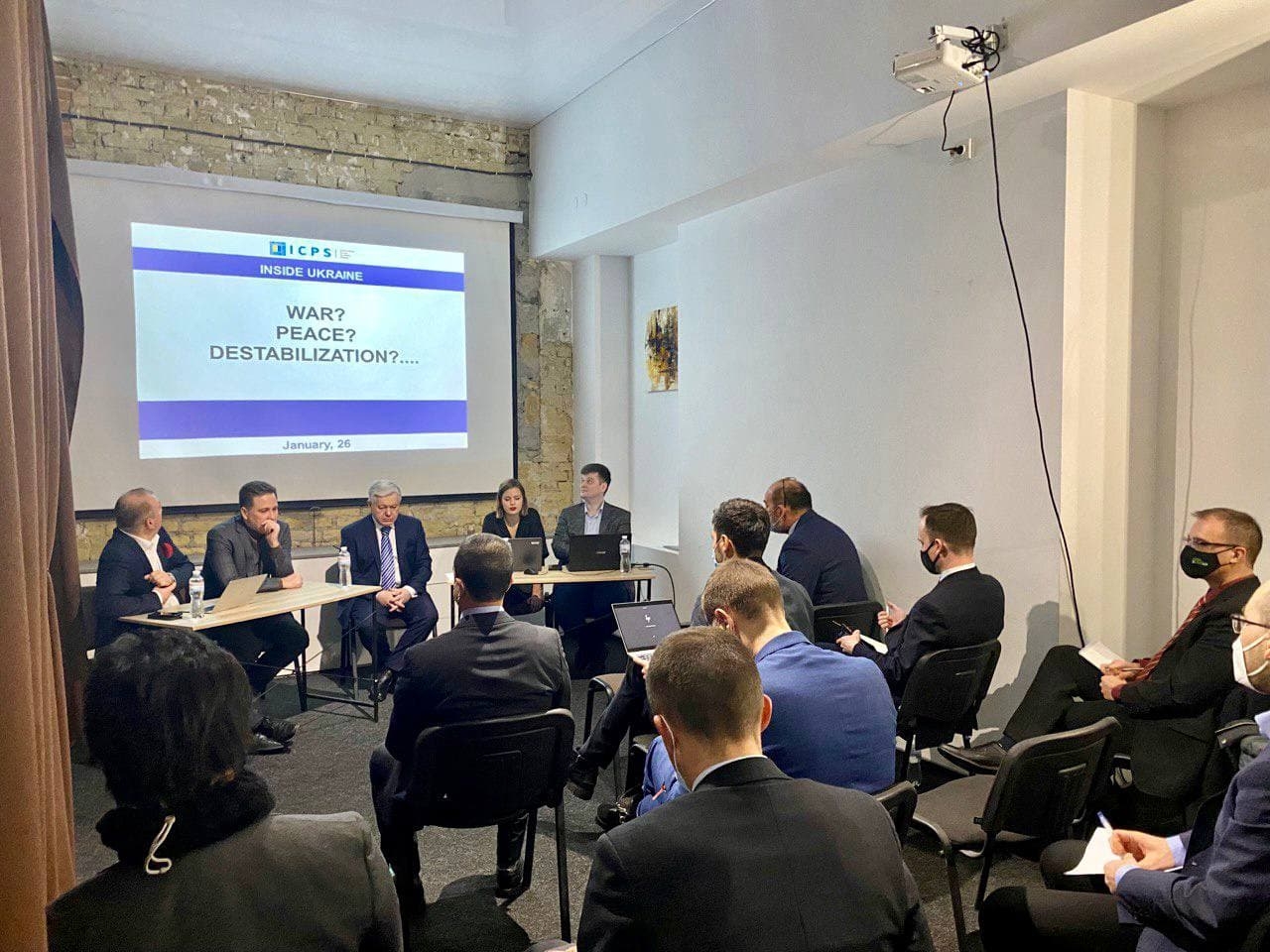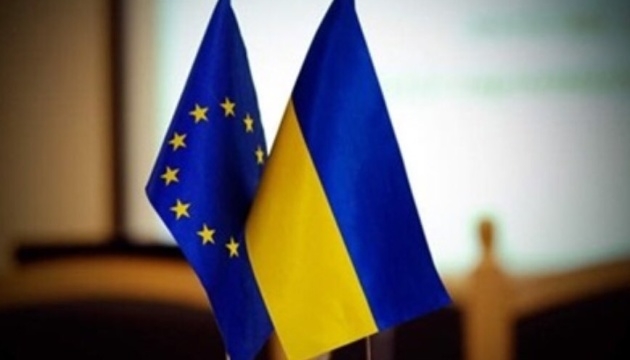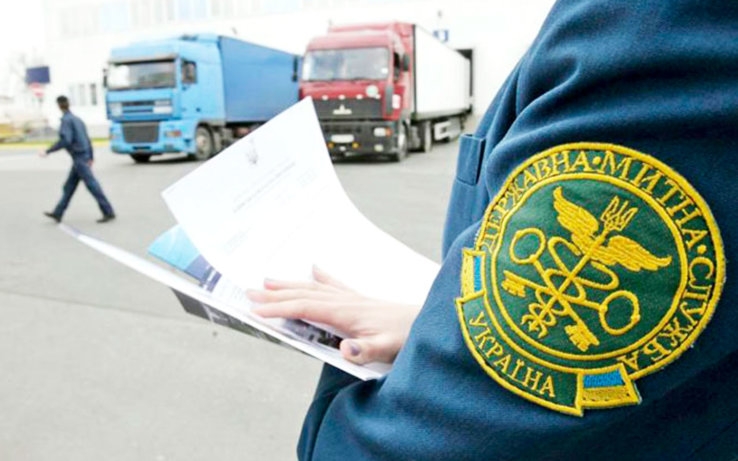Elections to United Territorial Communities: Results, Trends and Prospects of the Parliamentary Political Parties
26.05.2017The first phase of local elections to UTCs was won by the party of power "BPP-Solidarity", which with the help of technological projects "Nash krai" (eng. Our Land), "Agrarian party" and non-affiliated candidates will form its majority in a significant number of territorial communities. With high probability, the government will use this winning scheme in the next parliamentary elections. Second place went to the party "Batkivshchyna", which was able to take a clear niche of opposition against Petro Poroshenko. "Batkivshchyna" received high scores due to the operation at the local level, pension and land reforms. However, against the background of the campaign of the Radical party of Liashko and the Opposition bloc, technological projects of power – "Nash krai" and "Agrarian party" significantly strengthened their positions, and maintaining the existing electoral dynamics they have a good chance to get into the new parliament.
The presidential administration went to the elections in several columns, which allowed the authorities to obtain very good results. In particular, in the East and South of Ukraine the project "Nash krai" showed very good results, which allowed to get ahead of the "Opposition bloc", which is in the midst of the organizational, ideological and financial crisis.
In turn, new technological power project "Agrarian party" was able to impose electoral fight to the "Batkivshchyna" and the Radical Party of Oleh Liashko, whose voters are concentrated in villages and small towns. "Agrarian party" also criticized land and pension reforms, which allowed it to compete for voters in the opposition. The presence of significant financial resources and strong human asset on the ground, allowed the "Agrarian party" to get the high fourth result.
Also, the presidential administration can record the considerable part of deputies-independent candidates who, after winning the election will come in the ruling party, or will support "BPP-Solidarity". According to the data of CEC, totally 269 of independents won in the elections.
Thus, the results of local elections in the UTCs a landslide victory was obtained by the ruling party "BPP Solidarity", which with the help of independents and party-affiliated projects received about 60% of the seats in local councils.
Second place was awarded to the party "Batkivshchyna", which at the local level had a successful campaign based on critics of land and pension reforms. It is also worth noting that the party "Batkivshchyna" has one of the strongest party and organizational structures in Ukraine, which for the past 15 years regularly took part in election campaigns. The analysis of the results of local elections shows that the best results belong to the party of Yulia Tymoshenko in the central and southern regions of Ukraine.
In these areas small and middle-sized farms are particularly developed, they very painfully react to the sale of land that is actively used by the party "Batkivshchyna" in the process of political competition.
The low results of the elections in the communities were also demonstrated by the Radical Party of Liashko, whose main competitors were "Batkivshchyna" and "Agrarian party".
Also the parliamentary party "Samopomich" and "People’s Front" also took part in the electoral process and they showed very weak results. This is due to the overall drop in ratings of the parties of Yatsenyuk and Sadovyi, as well as very weak institutional and party structures. It is interesting to note that "People’s Front" decided to keep distance from "BPP", and in some regions still prepared their candidates who won the election. The party "UKROP" demonstrated very good performance in its base region Volyn and Western Ukraine in general. The relative success of the party "UKROP" was due to the failure of another nationalist party "Svoboda", which failed to gain a foothold in Central Ukraine. Another player on the right wing – "National Corps" of Biletskyi did not participate in local elections. The new party of Valentyn Nalyvaichenko "Sparevedlyvist" (eng. Justice) appeared, and it received 20 seats in the community. The party of Nalyvaichenko was trying to push the maximum number of its candidates for all districts, thereby demonstrating its desire to participate in the next parliamentary elections.
One of the main trends of local elections is the participation in the election campaign of regional political projects, such as "Cherkashchany" or "United center", focused on the regional elite, with large resources and strong influence in the certain communities. Elections were held in conditions of mobilization of the administrative resource by the party authorities, who tried at the expense of independents to maximize their representation in the local councils. Local elections in the UTCs demonstrated the fact that political parties have actively fought for financial sponsors who are already eyeing the potential of successful projects that can be funded in the next parliamentary elections.
Thus, without exception, all political parties consider local elections to UTCs as a rehearsal before the parliamentary elections. The administration of the President can count on the continued electoral success through independent candidates, the project "Nash krai", which competes with the Opposition bloc and the "Agrarian party", which is seen in Bankova Str. as the main electoral opponent of Radial Party and the "Batkivshchyna." For Yulia Tymoshenko, this election showed that her party is perceived as one of the few opposition alternatives regarding the structure of government of Petro Poroshenko. The ideological and organizational weakness of the Opposition bloc, voter fatigue from radicals and nationalists opens for "Batkivshchyna" a good electoral prospects. The first results of elections in UTCs also showed the increased influence among nationalist voters of the party "UKROP" which gradually absorbs the people’s and organizational network of "Svoboda" and other right-wing parties.
ICPS held a traditional monthly briefing for diplomatic missions
On Wednesday, January 26, the ICPS held a traditional monthly briefing for diplomatic missions. This time, the briefing took place in the office of the International Centre for Policy Studies, discussing threats and challenges of destabilization in Ukraine. During the event, Senior Advisor to the International Centre for Policy Studies Vasyl Filipchuk, Ukrainian diplomat Oleksandr Chalyi, as well as ICPS experts Anastacia Galouchka, Mykola Kapitonenko and Yehor Kyian presented the 101th issue of "Inside Ukraine". The ICPS discussed with the diplomats political, security, and economic threats and challenges facing Ukraine, including the possibility of a new Russian invasion. Please contact for more information, ordering, reviewing the issue and acquaintance with the terms of the subscription via e-mail: [email protected]
Еconomic and banking reforms towards Ukraine’s European integration
On behalf of the Henry Jackson Society and the International Center for Policy Studies (ICPS), we invite you to participate in an expert discussion on the topic “Еconomic and banking reforms towards ukraine’s european integration”, which will take place on the 20th of December 2021 at 17:00 (Kyiv time) in online format in Zoom. The link for participation is the following: https://us06web.zoom.us/webinar/register/WN_imT6teDhS7W6O0euLvFcMg Background Since Ukraine signed an Association Agreement with the European Union (EU) in 2014, the country has introduced a wide range of reforms towards its integration into a Deep and Comprehensive Free Trade Agreement (DCFTA) and achievement of a visa free regime with the Schengen Zone. However, despite positive achievements, there is a number of “blind spots”. The banking sector was also an important area where these reforms took place and its overhaul contributed towards Ukraine’s fight against corruption. Increasing the capacity of banks to effectively prevent financial crises and to provide services is seen as a necessary prerequisite for successful economic policy. At the same time, the impact of problematic factors of the global pandemic, in particular the slowdown in the world economy and the quarantine restrictions in the country have affected the banking sector of Ukraine. The panel will discuss what areas of reforms need to be improved as part of Ukraine’s European integration. The invited experts, representatives of the banking sector and interested organizations and institutions will outline the current state of state of reforms and will cover the following points: What are the main successes and failures of key economic reforms in Ukraine on the road to the EU? What are the main economic achievements of the year 2021 and the forecast for 2022? Are there any "blind spots" of the current reforms? What are the results of long-term banking reform? Is the current NBU management effective and independent? Will banks be able to become a driver of the Ukrainian economy and help bridge the gaps in economic development?
ICPS held a traditional monthly briefing for diplomatic missions
On Wednesday, December 15, the ICPS held a traditional monthly briefing for diplomatic missions. This time, the briefing took place in the office of the International Centre for Policy Studies, drawing conclusions of the eventful 2021 and making predictions for 2022. During the event, Senior Advisor to the International Centre for Policy Studies Vasyl Filipchuk and ICPS experts Mykola Kapitonenko and Yehor Kyian presented the 100th issue of "Inside Ukraine". The ICPS discussed with the diplomats the political, security, and economic conclusions of the year, at the same presenting the ICPS prognosis for 2022. Please contact for more information, ordering, reviewing the issue and acquaintance with the terms of the subscription via e-mail: [email protected]
ICPS issued an assessment of local/regional measures for August - September 2021
In this bulletin, the experts collected interesting materials about the measures that were implemented in different parts of Ukraine and analyzed their impact on the community and regions. In particular, they assessed an important measure that will bring Ukraine closer to energy independence and reduce the dependence from the Russian Federation: the opening of a storage facility for used nuclear fuel in Chernobyl by the 30th anniversary of Ukraine's independence. Measures in the field of education are important for Ukraine's approach to intellectual independence. Experts positively assessed the launch of the public budget for schools in order to involve students in the development of public space and in the cooperation with local governments in Ternopil. This practice is being picked up and implemented by other cities in Ukraine. These measures will have a positive effect in the future. Also, given the lack of schools in large cities and the lack of good conditions in educational institutions in many regions of the country, the renovation of the school in Odessa with the support of the European Investment Bank will affect the quality of education of schoolchildren and increase the level of education in general. An expert from the city of Khmelnytsky tested on her own experience whether a rail bus was launched on the route "Shepetivka - Kamyanets-Podilsky", which the residents of Khmelnytsky region were waiting for and the launch of which, according to the official website of Khmelnytsky Regional State Administration, is the first example of successful cooperation between local authorities and JSC “Ukrzaliznytsia”. The text is supplemented by author's photos of the train. The development of the new "Open Data Portal" in Dnipro was positively assessed, however there is a number of comments and questions from experts. It was also interesting to analyze the work of the Institute of Commissioners for Prevention and Detection of Corruption in Local Self-Government Bodies and its impact on corruption. The measure has received the lowest evaluation from experts; however, such cases are worth considering to work on errors and to develop effective action plans for the future. RANKING OF BEST AND WORST MEASURES Case Quality [-3; +3] Relevance [0%; 100%] Final score [-300; 300] Ranks Opening of a storage facility for storage of spent nuclear fuel in Chernobyl 2.5 88.33 220.83 I Involvement of students in the development of the territorial community in Ternopil 2.67 81.67 217.78 II Odessa: renovation of the school with the financial support of the European Investment Bank 2.5 85 212.5 III The suburban train connected the north and south of Khmelnytsky region 2.33 71.67 167.22 IV A new "Open Data Portal" has been developed in Dnipro 2 60.83 121.67 V The work of the Institute of Commissioners for Prevention and Detection of Corruption in Local Self-Government Bodies -2.2 60.6 -133.32 VI In addition, this publication summarizes the policy evaluation results for 2020-2021. The final rating of the 2020-2021 measures is as follows: Ranks Case Final score [-300; 300] Summary edition* 1 The first open auctions for the sale of amber were held in Volyn region 257,36 3rd edition 2 Malashivets landfill degassing 228,89 3rd edition 3 Opening of a storage facility for storage of spent nuclear fuel in Chernobyl 220,83 5th edition 4 Involvement of students in the development of the territorial community in Ternopil 217,78 5th edition 5 Implementation of the first automatic cameras for recording violations of traffic rules in Western Ukraine 217,78 2nd edition 6 Odessa: renovation of the school with the financial support of the European Investment Bank 212,50 5th edition 7 Development of tourist infrastructure of Ivano-Frankivsk region 208,33 2nd edition 8 Airport renewal in Chernivtsi 192,80 1st edition 9 All Transcarpathian wood will be sold through the ProZorro-Sale system 189,60 1st edition 10 The airport in Zhytomyr is preparing for the reconstruction and acceptance of international flights 175,00 4th edition 11 Implementation of the investment plan in the Berdyansk port 169,72 2nd edition 12 Interactive panels for schools of Stanychno-Luhansk district 169,17 2nd edition 13 The suburban train connected the north and south of Khmelnytsky region 167,22 5th edition 14 Organization of the educational process during a pandemic 162,50 4th edition 15 Dnipro city program to promote condominiums 140,56 3rd edition 16 Challenges towards implementation of local reforms 140,00 3rd edition 17 Creation of a GIS portal in the Kherson region 130,00 2nd edition 18 Approval of co-financing for the Katerynopil Center for Primary Health Care (Cherkasy region) 128,30 1st edition 19 Kryukiv Wagon-Building Plant: difficulties and further prospects 122,22 4th edition 20 A new "Open Data Portal" has been developed in Dnipro 121,67 5th edition 21 Development of tourism in Kropyvnytskyi 118,80 4th edition 22 Rivne territorial community and e-ticket 100,00 4th edition 23 Loan and grant agreement for the Solid Waste Infrastructure Modernization Project was signed between "Spetskomuntrans" and the EBRD (Khmelnytsky city) 96,00 1st edition 24 Mykolaiv region: QR-codes for tourism development 80,97 2nd edition 25 The largest state flags with flagpoles 40,83 3rd edition 26 About the creation of the municipal non-profit enterprise of the Mariupol city council "Hockey club" Mariupol" -27,20 1st edition 27 Kharkiv region: payments to doctors in case of COVID-19 illness -70,00 3rd edition 28 500 million loan for Odessa -80,70 1st edition 29 The work of the Institute of Commissioners for Prevention and Detection of Corruption in Local Self-Government Bodies -133,32 5th edition 30 Sumy region: abolition of wastewater control of enterprises -204,44 4th edition The analysis of measures implemented by local governments is a relevant and important factor in determining their effectiveness - both economic and social. In addition, it provides an opportunity to identify different aspects of the measure and to build a strategy for further decision-making and elimination of shortcomings. The detailed evaluation and the full document can be found here: Monitoring of Local and Development Policies in Ukraine (August 2021 - September 2021) *The first publication can be found by the link: http://icps.com.ua/assets/uploads/images/files/ineko/ua_local_measures_oct_2020_eng_.pdf The second publication can be found by the link: http://icps.com.ua/assets/uploads/images/files/ineko/ua_local_measures_jan_2021_eng_.pdf The third publication can be found by the link: http://icps.com.ua/assets/uploads/images/files/ineko/local_measures_apr_2021_eng.pdf The fourth publication can be found by the link: http://icps.com.ua/assets/uploads/images/files/ineko/local_measures_jul_2021_eng.pdf **The current summary was developed within the project “Strengthening democratic resilience of key public institutions in Ukraine”. The initiative is being implemented by the International Centre for Policy Studies (ICPS) in partnership with the Institute for Economic and Social Reforms in Slovakia (INEKO) and is financially supported by the Embassy of the United States in Kyiv, Ukraine. The project aims to improve the efficiency of the state administration, self-government and civil society in the area of creation and oversight of regional policies. It also aims to increase transparency and independence of key regulatory and judiciary institutions as well as transparency and financial stability of the biggest state-owned enterprises and local authorities in Ukraine. The main objective of this publication is to improve the quality of regional and/or municipal regulation and legislation through publishing a regular expert assessment of the socio-economic measures proposed or implemented by local governments in Ukraine. The purpose of the evaluation is to describe and promote reform and anti-corruption practices that can be transferred to other localities as well. At the same time, the critical assessment of non-transparent and inefficient measures should discourage representatives of local and regional authorities from their implementation. The policies included in the current summary were identified and analyzed with the support of the Evaluation Council experts who were selected by the International Centre for Policy Studies on the basis of their experience. In this bulletin, experts collected 6 measures implemented by local governments during August - September 2021. window.dataLayer = window.dataLayer || []; function gtag(){dataLayer.push(arguments);} gtag('js', new Date()); gtag('config', 'UA-122353741-2');
ICPS issued an assessment of local/regional measures for May - July 2021
The current summary was developed within the project “Strengthening democratic resilience of key public institutions in Ukraine”. The initiative is being implemented by the International Centre for Policy Studies (ICPS) in partnership with the Institute for Economic and Social Reforms in Slovakia (INEKO) and is financially supported by the Embassy of the United States in Kyiv, Ukraine. The project aims to improve the efficiency of the state administration, self-government and civil society in the area of creation and oversight of regional policies. It also aims to increase transparency and independence of key regulatory and judiciary institutions as well as transparency and financial stability of the biggest state-owned enterprises and local authorities in Ukraine. The main objective of this publication is to improve the quality of regional and/or municipal regulation and legislation through publishing a regular expert assessment of the socio-economic measures proposed or implemented by local governments in Ukraine. The purpose of the evaluation is to describe and promote reform and anti-corruption practices that can be transferred to other localities as well. At the same time, the critical assessment of non-transparent and inefficient measures should discourage representatives of local and regional authorities from their implementation. The policies included in the current summary were identified and analyzed with the support of the Evaluation Council experts who were selected by the International Centre for Policy Studies on the basis of their experience. In this bulletin, experts collected 6 positive measures implemented by local governments during May - July 2021. Selected cases of this issue show the lack of in-depth analysis before making a decision by local authorities, ignoration of the interests of various participants in the process, as well as lack of strategic planning and vision of the results of decisions, absence of financially sound indicators and other problems. The decision of the Sumy City Council to abolish the control over wastewater of enterprises has significant risks for the environmental situation in the city and region (and the health of citizens), as well as for the financial condition of the utility company engaged in wastewater treatment. The adoption of such a serious decision by deputies without proper justification does not comply with the principles of proper public and accountable governance, exacerbates the problem in the field of environmental protection and defends a small number of stakeholders. The introduction of an electronic fare system is a very important task for all municipalities in Ukraine. However, in Rivne for a long time the city authorities cannot decide on the choice of provider to implement an electronic ticket system. The lack of explanation for the delay by local governments and the non-transparency of the decision-making process regarding the selection of a contractor (that is beneficial to the city) is a source of distrust and concern for the community. During the period of the pandemic spread, the issue of providing quality educational services throughout Ukraine is also acute. In this bulletin, experts evaluated the decision to purchase laptops for teachers. The solution is good; however, such an initiative should have been introduced after the first wave of the epidemic. Tenders will stretch the buying process in time and it will not be completed until the beginning of the third wave of the epidemic. It is also important to implement a comprehensive approach to ensure the quality educational process. Almost every bulletin contains material on the development of tourism in a particular region. This bulletin contains a block dedicated to the tourist forum held in Kropyvnytskyi. The city and Kirovohrad region have a good potential to attract tourists, which will contribute to the formation of a positive image of the region and increase the interest of tourists and business. At the same time, the management's decision-making (especially regarding the direction of budget funds) should be preceded by the calculation of the economic effect of implementation of measures and evidence that the interests of the community are be taken into account in the first place. The presence of the airport significantly increases the capabilities of any region, and, therefore, the desire of the Zhytomyr authorities to reconstruct their airport is quite understandable and logical. However, from the point of view of expediency, the priority of state support for the reconstruction of this airport may raise questions due to there are two airports in Kyiv (150 kilometers away) and the airport in Rivne (200 kilometers away), which also have international status. The decision to open the new airport should be made only after a careful analysis of the fact that this airport indeed covers an area where it can generate significant volumes of passenger traffic and can be profitable in its activities. Also, this bulletin reviews the problem of government procurement, which constantly arises in PJSC "Kryukiv Carriage Plant". The enterprise is an important object of industry of Poltava region. However, its operation depends on government orders and timely payments for the execution of orders. Due to there is no clear plan at the state level to upgrade the country's railway depot, the company cannot plan the operation of its own production facilities. This situation should direct management forces to find new ideas for the company or to find potential customers who can ensure the stable operation of the plant. RANKING OF BEST AND WORST MEASURES Case Quality [-3; +3] Relevance [0%; 100%] Final score [-300; 300] Ranks The airport in Zhytomyr is preparing for the reconstruction and acceptance of international flights 2.33 75 175 I Organization of the educational process during a pandemic 2.17 75 162.5 II Kryukiv Wagon-Building Plant: difficulties and further prospects 1.67 73.33 122.22 III Development of tourism in Kropyvnytskyi 2.2 54 118.8 IV Rivne territorial community and e-ticket 1.5 66.67 100 V Sumy region: abolition of wastewater control of enterprises -2.67 76.67 -204.44 VI Thus, a detailed analysis, calculation of the economic and social impact of the measures will help to make better use of available resources, to consider more effective decisions and to ensure the interests of the majority of the community, which in turn will increase the trust and support of the local government and will ensure sustainable development. The detailed evaluation and the full document can be found here: Monitoring of Local and Development Policies in Ukraine (May 2021 - July 2021) window.dataLayer = window.dataLayer || []; function gtag(){dataLayer.push(arguments);} gtag('js', new Date()); gtag('config', 'UA-122353741-2');
Ukraine’s Customs Service vs. Smuggling: Shadowboxing?
One should not underestimate the role of customs in the Ukrainian economy. In 2020, its contribution to the budget amounted to 360 billion UAH, constituting 33% of the budget’s total revenues. According to the latest data, in January-June 2021, the State Customs Service contributed 207.5 billion UAH to the Ukrainian budget, thus exceeding the revenue plan by 108%. However, these figures fall short of the potential that customs could bring to Ukraine’s economy. To improve its efficiency, the State Customs Service began work in the format of a single legal entity starting from July 1, 2021. However, it remains to be seen whether the changes will solve systemic problems of the customs. Following the present-day needs and the memorandum concluded with the International Monetary Fund, the customs was reformatted into a single legal entity – the State Customs Service subordinate to Ukraine’s Ministry of Finance. However, the new format may fail to change the substance. As per the ICPS’ recent study on the independence of state institutions, the State Customs Service and the State Tax Service of Ukraine proved to be the least legally protected from interference and external influence, having a plethora of legislative loopholes and shortcomings. In the study, they were negatively underscored in the areas of the appointment and dismissal of senior management, sovereignty, the transparency of the appointed management’s income, as well as the transparency of the competition for the position to head these institutions. The lack of changes in the legislative field regarding the State Customs Service only confirms the fears that the change of form may not lead to the change of its content. This, in turn, is just a part of the problem. Overall, according to various data, losses from gaps in legislation, the "inefficiency" of customs and smuggling reach over 4-5 billion USD per year. These figures were named by Ukraine’s Minister of Internal Affairs Arsen Avakov, former head of the State Customs Service Maksym Nefyodov, and Minister of Finance Serhiy Marchenko. The numbers are rather impressive, as these funds could be used to address key economic and social issues of the Ukrainian economy. The money could also diminish the need to attract loans from the IMF, the EU and the World Bank, which now serve as a burden to the Ukrainian budget. With this, it’s quite easy to evaluate the extent of the institution’s "inefficiency". It’s enough to compare official data on exports and imports from Ukraine with the corresponding statistics on Ukraine coming from the state’s trading partners. For example, in 2020, according to Ukraine, the country’s exports to the EU amounted to $18.66 billion. As per the EU data, the figure was $19.57 billion. Similarly, as per Ukrainian statistics, imports amounted to $23.74 billion, while European statistics showed $27.43 billion. Surely, akin discrepancies could arise for various reasons; however, smuggling is one of the key problems accounting for the said differences. According to the State Border Guard Service of Ukraine, cars, tobacco and alcohol predominate among the smuggled goods. It’s worth noting that the scale of smuggling and the scale of the shadow economy are interrelated. At the same time, the volume of the latter ranges from 30% to 50%. This, in turn, may be a "normal phenomenon" during the economic recession (creating a "safety cushion" and smoothing the "sharp corners" of public policy, but it’s a highly negative occurrence during economic growth. It hinders the prospects for development and creates asymmetries. At the same time, no systemic solutions to combat the shadow economy and "gray" imports have been proposed. Reformatting, hiring new staff, dismissing chairmen and employees has not led to the desired effect. Moreover, the Economic Security Bureau was invented to deal with smuggling. There is also Bill № 5420 on establishing criminal liability for smuggling and inaccurate declaration of goods. Nevertheless, the bill is rather ambiguous, as it provides for higher fines on goods worth 50-100 thousand UAH. This, in turn, may affect regular citizens of Ukraine. Unfortunately, all the measures described above target "small fish": they deal with symptoms rather than causes of the problem. With this, it’s worth highlighting the recent decision of the National Security and Defense Council to impose sanctions on top smugglers, even though its results will not be felt immediately. Moreover, it remains unclear whether high-ranking officials involved in smuggling would be affected by the decision. As a result, smuggling shall remain one of the main causes of Ukraine’s budget loss for quite a while. The problem is rather multifaceted: on one hand, there are efforts of small businesses to survive and compete; on the other hand, big businesses strive to minimize the costs. Customs officers and officials, in turn, desire to make money in the face of weak institutions and relative impunity. The solution is simple – minimizing the human factor. Additionally, some of the recommendations are: • To strengthen interdepartmental cooperation; • To synchronize import-export databases, conducting information exchange with major trading partners; • To introduce the New Computerised Transit System (NCTS); • To strengthen diplomatic ties and accelerate the above-mentioned cooperation process; • To diminish legislative loopholes in the functioning of customs; • To accelerate the implementation of the Law "On Economic Operator" and the Law "On Joint Transit"; • To annul the decriminalization of smuggling on a particularly large scale; • To develop domestic production of substitutes and complementary goods; • To review the customs tariff grid (the higher the duty or excise duty, the greater the "gray" imports); • The issue of illegal export of forests and natural resources deserves special attention. Surely, the list is not exclusive. In general, the attempts to solve current problems (such as combatting cross-border small-scale trading and the restrictions imposed on individual entrepreneurs) fall under the Pareto principle, though not in the best way. According to the principle, roughly 80% of consequences come from 20% of the causes. In the case of Ukraine, 80% of work – requiring significant effort and time – may lead to merely 20% of the results. Clearly, the 20% of work should be targeting “big fish”. However, there is not enough political will to do that. Large-scale smuggling cannot exist without political protection. While the Security Service and the Ministry of Internal Affairs divide the spheres of influence in regards to customs, Ukrainians shall face another peak of debt payments in the fall. Having customs as a single legal entity – or not – will not solve the major problem.






